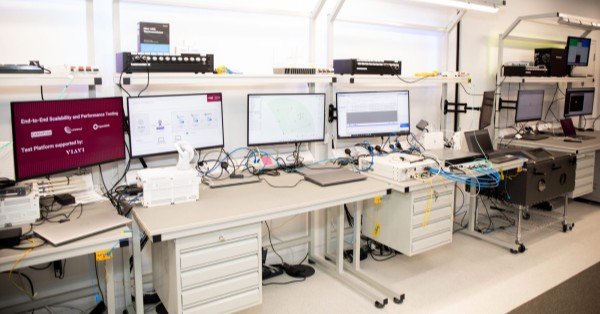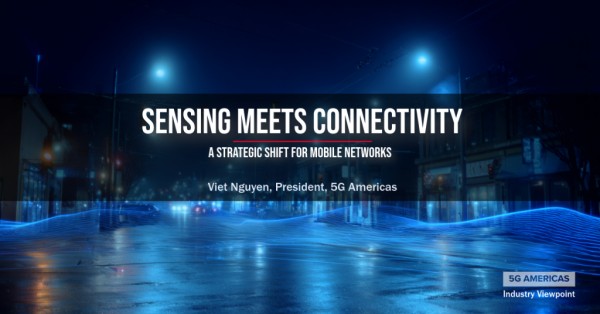Overview of 5G virtual stadium immersive fan experience
Ooredoo Qatar, partnered with Ericsson and demonstrated 5G based virtual stadium immersive fan experience at the 2019 Amir Cup Final and grand opening of the Al Janoub Stadium, built to host the 2022 tournament.
The South Stadium of Al Wakrah was equipped with Elastic Cloud Radio Technology and Antenna with High Order Massive-MIMO to give fans a glimpse into the enriched experience 5G developments can bring while watching live sport. The 5G immersive sports demo was live broadcasted to a Virtual Stadium at Mall of Qatar where consumers experienced the Virtual Reality and immersive experience of the match remotely.
Here, an immersive 5G experience ran simultaneously for the 90 minutes of the final match in a Virtual Stadium at Mall of Qatar. Paired with high bandwidth, this enabled viewers to enjoy a real time streaming experience that rivalled the quality and scalability of streaming resolution through conventional media. A number of cameras had been installed around the stadium by Ooredoo, including 360 degree cameras, to capture every corner of the pitch and every second of the footballing action.
During the match, fans – utilising the Immersive Sports Experience booths – were effectively able to become directors of their own match broadcast, controlling the angles and camera selections and switching between views at will to completely personalise their match experience and ensure maximum enjoyment.
Technologies & approach for 5G virtual stadium immersive fan experience
Ericsson provided 5G New Radio (NR), IP Multimedia Subsystem (IMS), Elastic Cloud Radio Technology, Antennae with High Order MIMO, Ericsson Radio System, Ericsson microwave solutions.
The mobile technologies enabled Ooredoo to reach data speeds of up to 1.2 Gbps with a 5G handset, with Ericsson’s latest 5G technology.
The Ooredoo network delivered more than 6 TB of mobile traffic – the equivalent of around 1,300 streamed full HD movies or DVDs – with record high set-up success rates in excess of 99.5%.
Spectators in the South Stadium also used the Ooredoo network to make somewhere in the region of 500,000 voice calls, and during the game the Ooredoo team was able to achieve phone speeds of up to 1.2 Gbps. More than 10,000 spectators used the free Wi-Fi in the stadium, using more than 2 TB throughout the game.
Partnering with global network and technology leader Ericsson, the Ooredoo team spent months preparing for the event, and utilised information gained from other major sporting events, such as Superbowl 2019 in the USA and the Football World Cup in Russia, to develop a world-class experience for the South Stadium opening. With more than 100 experts in the Ooredoo Operation Centre and some 20 in the stadium, the Emir Cup final proved to be an incredibly successful test for Ooredoo on its journey towards 2022.
RELATED: How 5G is transforming healthcare industry? and 5G Connected Ambulance – Remote Patient Assessment
Benefits from sports fan perspective
For fans unable to make it to the South Stadium for the match, there was an 5G based Immersive Sports Experience booth at Mall of Qatar, and for fans actually at the stadium and lucky enough to be in the hospitality lounge, another Virtual Stadium Immersive Sports Experience booth offered them the chance to try out the new technology.
During the match, fans – utilising the Immersive Sports Experience booths – were effectively able to become directors of their own match broadcast, controlling the angles and camera selections and switching between views at will to completely personalise their match experience and ensure maximum enjoyment.
Use case showcase location and timeline
May 2019 at
- Al Janoub Stadium, Qatar
- South Stadium of Al Wakrah, Qatar
- Virtual Stadium at Mall of Qatar
5G Communication service provider
Ooredoo provided mobile connectivity for this use case, to enable 5G virtual stadium based immersive fan experience.
Ooredoo is Qatar’s leading communications company, delivering mobile, fixed, broadband internet and corporate managed services tailored to the needs of consumers and businesses. As a community-focused company, Ooredoo is guided by its vision of enriching people’s lives and its belief that it can stimulate human growth by leveraging communications to help people achieve their full potential. Ooredoo has a presence in Qatar, Kuwait, Oman, Algeria, Tunisia, Iraq, Palestine, the Maldives, Myanmar and Indonesia.
5G Virtual statium use case solution partner
Ericsson provided 5G technologies, such as Ericsson Radio System, 5G New Radio, IP Multimedia Subsystem (IMS), and Ericsson microwave solutions for this use case.
Ericsson enables communications service providers to capture the full value of connectivity. The company’s portfolio spans Networks, Digital Services, Managed Services, and Emerging Business and is designed to help their customers go digital, increase efficiency and find new revenue streams. Ericsson’s investments in innovation have delivered the benefits of telephony and mobile broadband to billions of people around the world. The Ericsson stock is listed on Nasdaq Stockholm and on Nasdaq New York.
Ooredoo’s commitment to new technology and experiences
Speaking of the new technology and experiences, Waleed Al Sayed – Chief Executive Officer at Ooredoo – said: “First, I’d like to congratulate our beloved country and its wise leadership on the successful inauguration of the South Stadium. We’re all very proud of this amazing achievement ahead of 2022. As always, we’re completely committed to bringing our customers the latest technology with all our products and services, and finding ways to improve their digital lives. The Emir Cup was the ideal opportunity for us to showcase yet more ways our groundbreaking 5G network will transform lives, whether in medical care or in sports enjoyment, and the ideal opportunity for us to show exactly what our 5G network is capable of. 5G will revolutionise many aspects of our lives in the very near future, and we’re immensely proud to be at the forefront of the 5G revolution.”




























